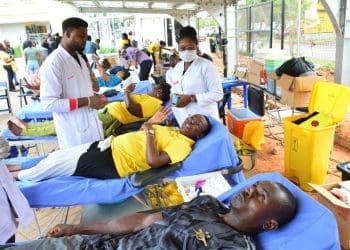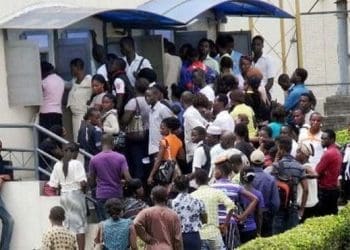Commercial banks are expecting a 200-basis-point cut in the Bank of Ghana’s (BoG) Monetary Policy Rate (MPR) ahead of the 125th Monetary Policy Committee (MPC) meeting.
The anticipated reduction is expected to ease capital costs for banks and trigger lower interest rates, encouraging lending to businesses and individuals and thereby boosting economic growth.
Mr John Awuah, Chief Executive Officer of the Ghana Association of Banks, expressed optimism that recent improvements in key macroeconomic indicators—declining inflation and a stabilising exchange rate—would prompt the Central Bank to act decisively.
The MPC is scheduled to meet from 28th to 30th July, with the new policy rate to be announced on 30th July. The rate currently stands at 29 per cent, a level of concern for commercial banks, small enterprises and individual borrowers.
“The signals are encouraging. We believe the economy is ripe for a reduction in the policy rate by at least 200 basis points, which will translate into more competitive lending rates across the commercial banking sector,” Mr Awuah stated.
A 200-basis-point cut would lower the benchmark interest rate from 29 to 27 per cent, potentially making borrowing more affordable for businesses and consumers.
“If the policy rate moves in directions southwest, definitely we are going to have a kind of reduced lending rate,” Mr Awuah added, indicating a likely reduction in commercial banks’ lending rates.
On Thursday, 17th July, the MPC held an emergency meeting to review economic developments ahead of its formal session.
The Committee noted that headline inflation had declined for six consecutive months to 13.7 per cent in June 2025. The Cedi appreciated by 42.6 per cent year-to-date against the US dollar, while GDP growth reached 5.3 per cent in the first quarter of 2025.
Provisional data showed a trade surplus of US$5.6 billion and a current account surplus of US$3.4 billion in the first half of 2025, up from US$1.4 billion and US$283.1 million, respectively, during the same period in 2024.
Gross international reserves rose to US$11.1 billion at the end of June 2025, equivalent to 4.8 months of import cover, compared with US$8.98 billion at end-2024.
On the global front, the Committee highlighted uncertainty, a weakening growth outlook—with projections slowing to 2.8 per cent in 2025 from 3.3 per cent in 2024—tight financial conditions, and disinflation.
“Overall, the Committee noted significant improvements in the current macroeconomic conditions and the positive outlook. Inflation expectations are broadly anchored, external buffers have strengthened, and confidence in the economy is returning,” the BoG stated following the emergency meeting.
Meanwhile, BoG Governor, Dr Johnson Pandit Asiama, has raised concerns over the persistent dollarisation of transactions in sectors such as real estate, education, and luxury retail.
“This practice not only violates legal tender laws but also undermines confidence in the Cedi,” he remarked at a Graphic Business/Stanbic breakfast meeting, signalling upcoming policy measures to strengthen foreign exchange management.













